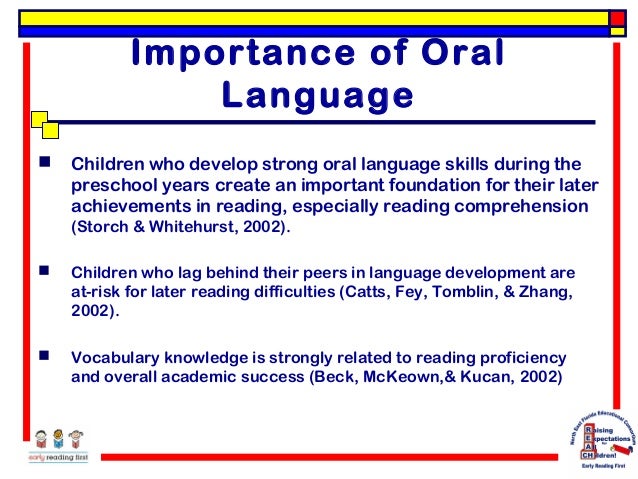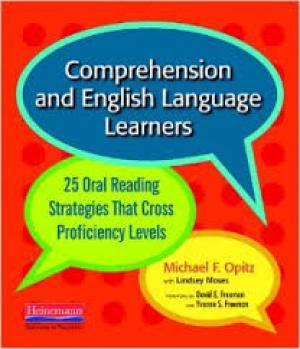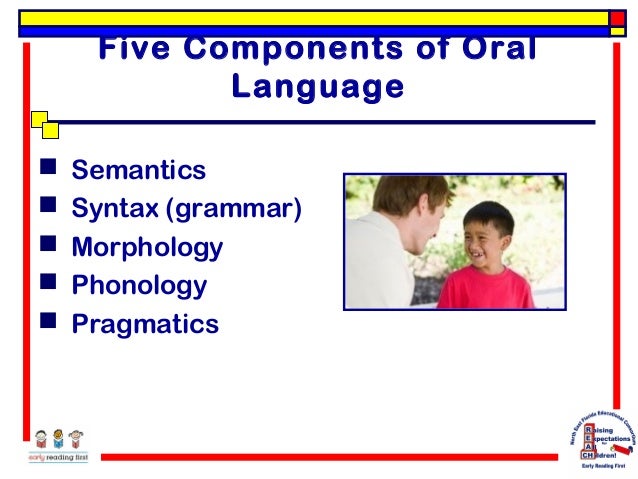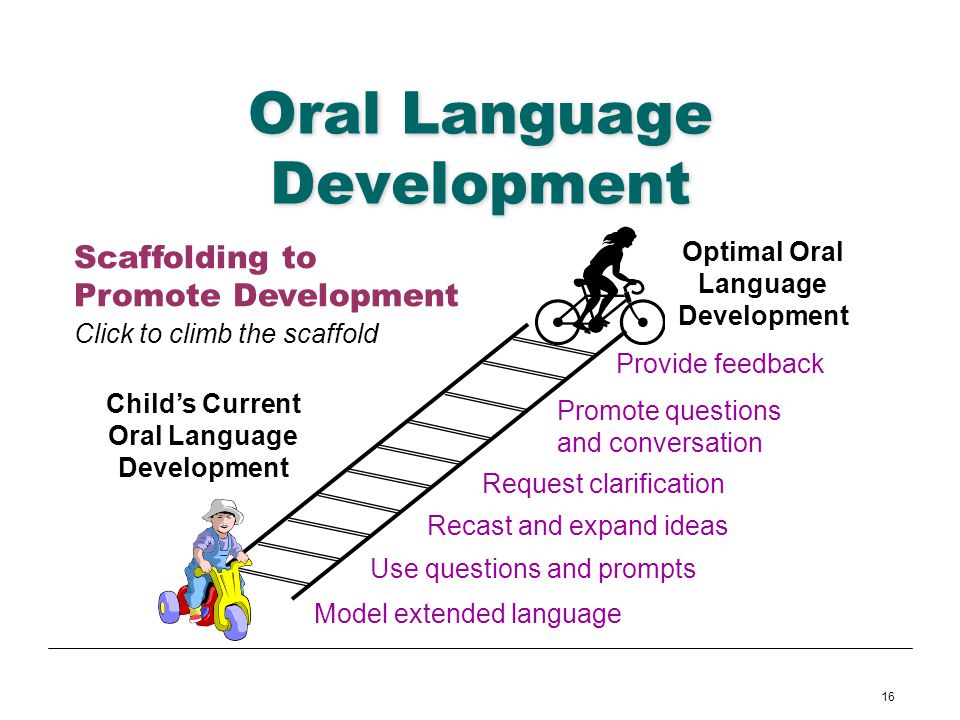ELLs can benefit from Reader’s Theater activities in a number of ways, including fluency practice, comprehension, engaging in a story, and focusing on …

Information and resources on effective teaching strategies for English Language Learners in K-12 settings.

In this article written for Colorín Colorado, Dr. Lindsey Moses Guccione shares five key challenges related to the oral language development of ELLs, as well as tips for addressing each of the challenges. Dr. Moses Guccione is the co-author of Comprehension and English Language Learners: 25 Oral
8 Strategies for Precollege ELLs’ Language and Literacy Development. By: Karen Ford. Early hood education can play an essential role in preparing English language learners (ELLs) for later success in college.

The development of oral language is one of the ‘s most natural – and impressive – accomplishments.



Resources CAELA Network Briefs Using Oral Language Skills to Build on the Emerging Literacy of Adult English Learners. Patsy Vinogradov and Martha Bigelow

Unit of competency details CHCEDS005 – Support the development of literacy and oral language skills (Release 2)
Language development is a process starting early in human life. Infants start without knowing a language, yet by 10 months, babies can distinguish speech sounds and engage in babbling.
STRATEGIES FOR CONCEPTUALLY CHALLENGING WORDS. Selecting and teaching conceptually demanding words is essential to ensuring that diverse learners are able to grapple with the “big ideas” crucial to understanding a challenging text.


2012 Volume 5 Number 2 reviews Center for Early Literacy Learning Carl J. Dunst Andrew Simkus Deborah W. Hamby ren’s Story Retelling as a
